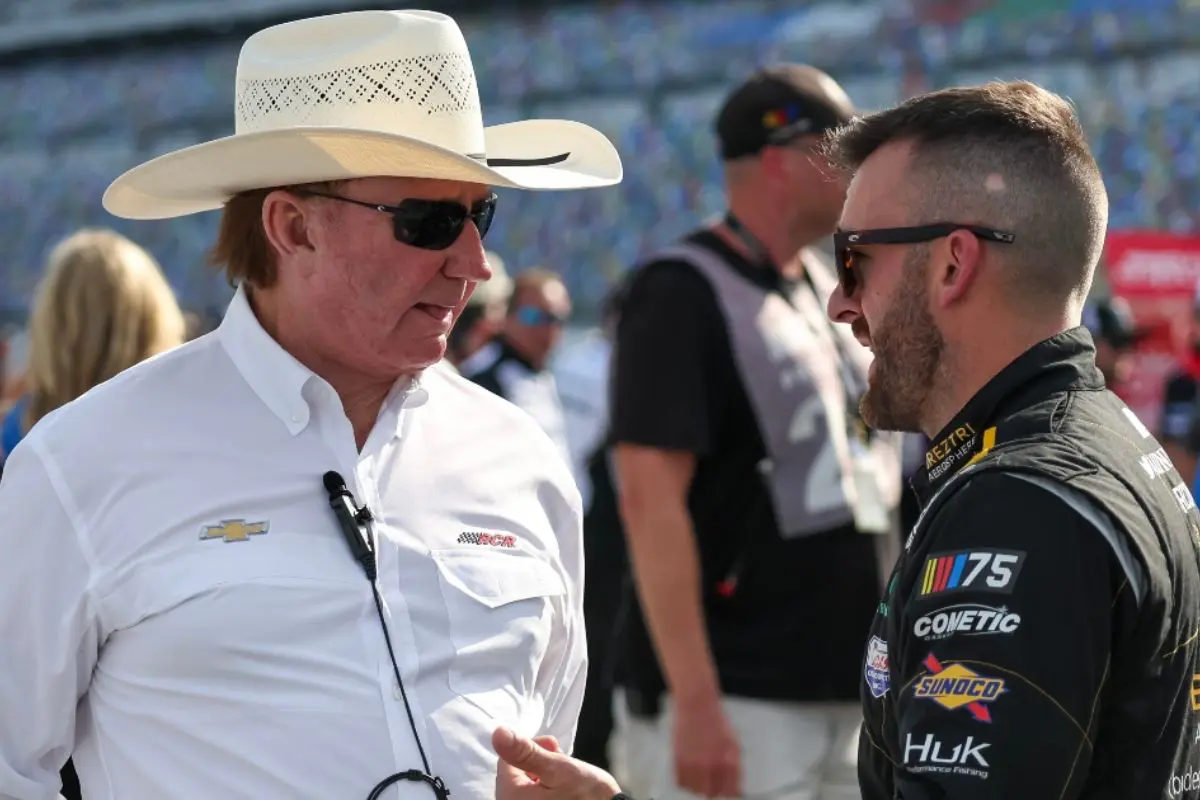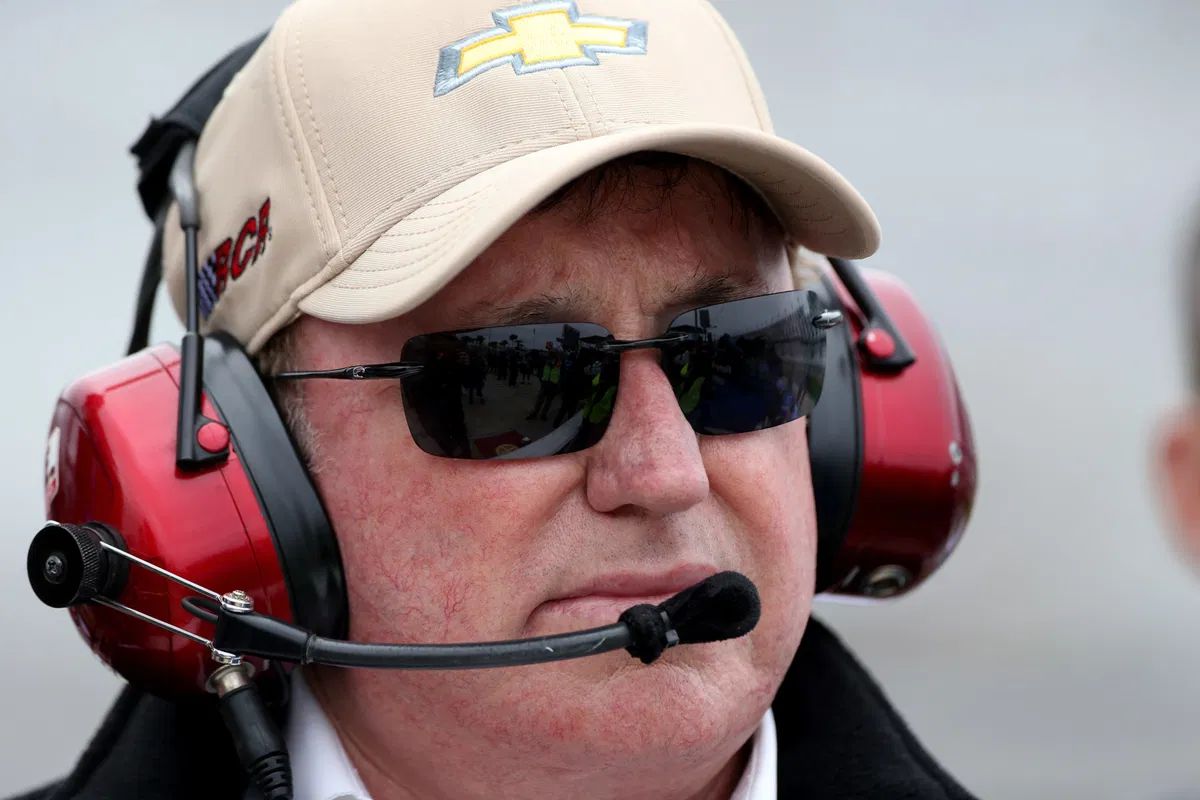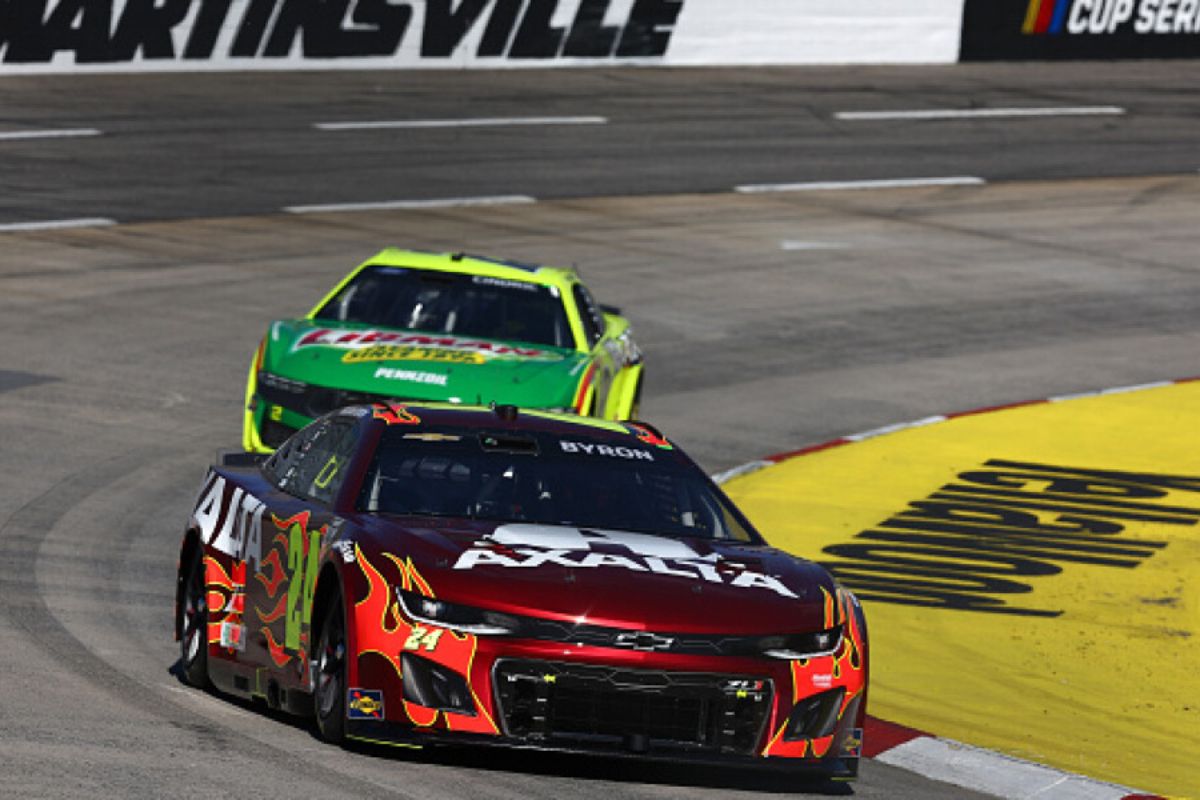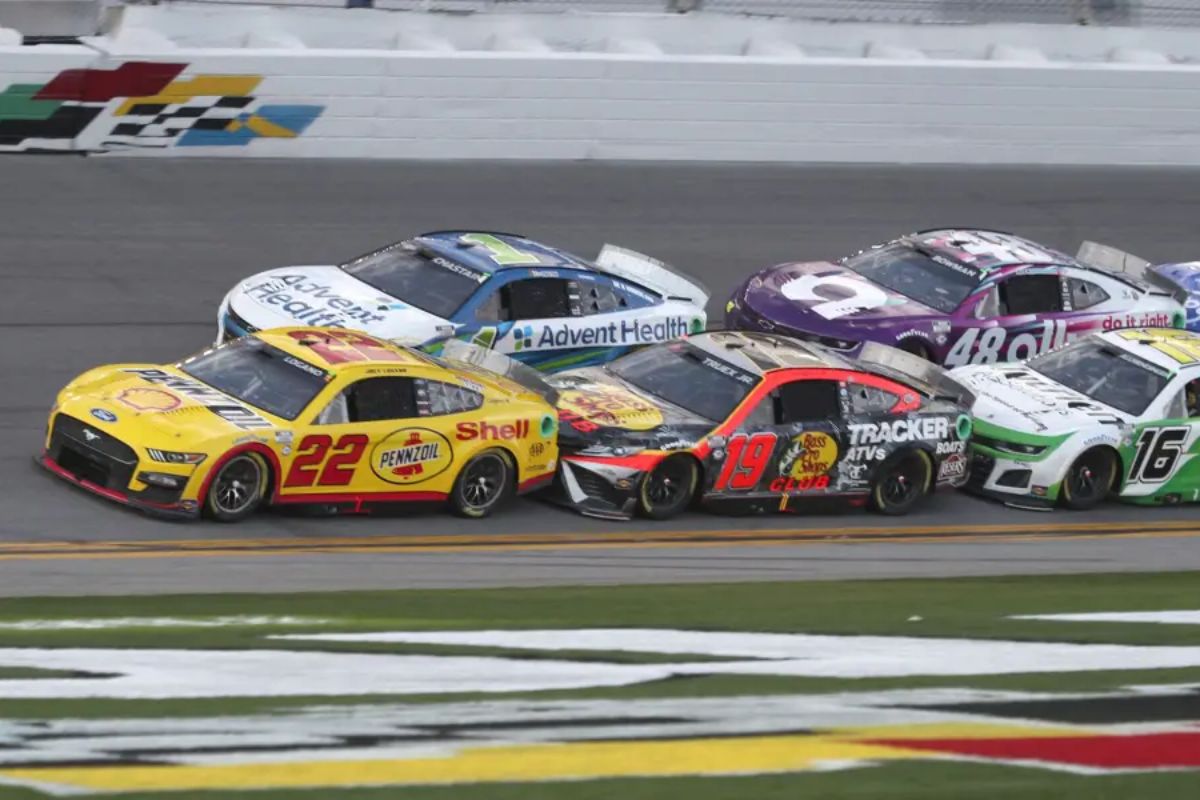Richard Childress Slams NASCAR’s Ruling: Richard Childress‘s recent condemnation of NASCAR’s ruling on Austin Dillon emphasizes a critical moment in the sport’s regulatory evolution. By asserting that the decision has “changed NASCAR racing forever,” Childress highlights the broader implications not only for Dillon’s competitive future but also for the financial stability of teams that depend on playoff revenues. This ruling raises questions about the integrity of NASCAR’s governance and the consistency of its regulations. As reactions from other stakeholders unfold, the consequences of this decision may reshape the landscape of the sport in ways yet to be fully understood.
Key Highlights
- Richard Childress expressed deep disappointment that NASCAR’s ruling on Austin Dillon’s playoff spot alters the competitive landscape of the sport.
- The penalty imposed on Dillon represents the largest financial impact in NASCAR history, jeopardizing millions in potential earnings.
- Childress criticized the appeals process, questioning its impartiality and the influence NASCAR has over the decision-making.
- The ruling has sparked a debate among drivers about the line between aggressive racing tactics and reckless behavior on the track.
- Stakeholders are calling for clearer guidelines from NASCAR to ensure fair competition and compliance moving forward.
Childress’s Disappointment and Financial Impact
Expressing profound disappointment, Richard Childress has voiced his concerns regarding NASCAR’s recent ruling that revoked Austin Dillon’s playoff spot. As a seasoned team owner with 55 years of experience in the sport, Childress’s reaction carries considerable weight. He articulated that the decision not only affects Dillon’s immediate competitive standing but also sets a precedent that could reshape the dynamics of NASCAR racing.
Childress emphasized the ruling’s profound financial consequences, noting that the loss of a playoff opportunity translates to over a million dollars in potential earnings. This staggering figure positions the fine as the largest in NASCAR history, highlighting the economic stakes involved in the sport. Such financial penalties extend beyond mere numbers; they threaten the operational viability of teams reliant on playoff revenue for their sustainability.
Furthermore, Childress’s assertion that this ruling “changed NASCAR racing on the final lap forever” suggests that the implications are not confined to his team alone. It raises critical questions about the consistency and transparency of NASCAR’s regulatory processes.
“Their ruling has changed NASCAR racing on the final lap forever.”
“It’s over a million dollars to us. The largest fine ever in NASCAR. I’m just disappointed, disappointed, disappointed. That’s all I can say.” – Childress
Appeal Process and NASCAR Ruling
The appeal process surrounding NASCAR’s ruling on Austin Dillon’s playoff eligibility exemplifies the complexities and challenges inherent in the sport’s regulatory framework. Following Dillon’s controversial victory at Richmond on August 11, where he collided with both Joey Logano and Denny Hamlin, Richard Childress Racing (RCR) sought to contest NASCAR’s decision to revoke Dillon’s automatic playoff berth.
This ruling was predicated on the stipulation that a win must be unencumbered by violations or actions detrimental to NASCAR, a clause that has important implications for both the integrity of the sport and the competitive landscape.
RCR’s appeal was met with a swift rejection by a three-member NASCAR-appointed appeals board on August 20, followed by an upholding of the decision by NASCAR’s final appeal officer on August 25. This series of denials highlights the stringent enforcement of NASCAR’s rules and the challenges teams face when contesting regulatory decisions.
The appeals process, while designed to provide a mechanism for teams to seek redress, can often feel opaque and unforgiving, particularly in high-stakes situations.
The outcome of this appeal not only affects Dillon’s playoff status but also sets a precedent for future rulings in similar scenarios. As teams navigate the intricacies of NASCAR’s regulatory framework, the implications of this ruling could resonate throughout the sport, prompting teams to reassess their strategies and approaches to compliance.
NASCAR’s Justification for the Ruling
NASCAR’s ruling regarding Austin Dillon‘s playoff eligibility hinges on the organization’s commitment to maintaining the integrity of the sport. The decision is framed within the parameters of the NASCAR rulebook, which grants the governing body “sole discretion” to define actions detrimental to racing standards. This ruling stems from a broader initiative to uphold the sport’s reputation and avoid any perception of leniency that could compromise competitive fairness.
NASCAR President Steve Phelps articulated the rationale behind the decision during a recent podcast, emphasizing the necessity of imposing consequences for contact between drivers. He noted that failing to penalize Dillon could have led to unpredictable behaviors over the course of the upcoming weeks, potentially transforming the nature of the sport into something akin to a demolition derby. Phelps’s remarks highlight the organization’s intention to preserve the core values of racing, which prioritize skill, strategy, and respect among competitors.
“If we hadn’t penalized it, then I think what we would see over the next 12 weeks would look significantly different, We just can’t have it.”
“It really comes down to ‘what do you want your sport to be?’ And that’s why I think we ruled the way we did because we’re not demolition derby; we’re just not. We are a sport that if we had done nothing, we would’ve opened ourselves up for a mess, honestly.” – Phelps
The ruling was not merely punitive; it reflects a proactive stance aimed at deterring future infractions. By asserting its authority in enforcing rules, NASCAR seeks to maintain order and promote a competitive environment that aligns with the expectations of its fan base.
The overarching message from NASCAR is clear: the integrity of the sport will not be compromised, and actions deemed detrimental will face appropriate repercussions. This decision, consequently, serves as a crucial moment in NASCAR’s ongoing efforts to define the essence of competitive racing and safeguard its longevity as a respected sport.
Reactions from Other Drivers and Childress’s Argument
Diverging perspectives emerged following NASCAR’s ruling, revealing a complex landscape of opinions among drivers regarding the decision’s implications for competitive racing. Prominent figures like Joey Logano and Denny Hamlin expressed their discontent, labeling the on-track actions in question as intentional wrecks. This sentiment was echoed by other drivers who asserted that they would not have engaged in similar tactics.
However, Richard Childress, owner of Richard Childress Racing, offered a counterargument, asserting that the moves made by the drivers did not cross the line of egregiousness. He articulated a critical distinction between aggressive racing and reckless behavior, questioning the clarity of the rules governing this gray area in competitive racing.
“The drivers now, they know where a line is, or they think they do, They don’t. If you go in a car length – two-and-three-quarters was exactly how far back he was [of Logano], and the other car slows down 3 miles an hour on the last lap, you’re going to bump in a little to get [him] up the race track. Is that over now?” – Childress
Childress emphasized the evolving understanding of the “line” in racing, suggesting that drivers might misinterpret the boundaries of acceptable conduct on the track. He remarked, “If you go in a car length – two-and-three-quarters was exactly how far back he was [of Logano]… you’re going to bump a little to get [him] up the race track.” This reflection highlights an ongoing debate about the competitive nature of NASCAR and the regulatory framework shaping its future.
“They don’t. If you go in a car length – two-and-three-quarters was exactly how far back he was [of Logano], and the other car slows down 3 miles an hour on the last lap, you’re going to bump in a little to get [him] up the race track. Is that over now?” – Childress
Appeals Panel and Legal Considerations
Following the varied reactions to NASCAR’s recent ruling, attention now shifts to the structure and function of the appeals panel involved in the decision-making process. Comprised of three members selected from a pool of approximately 20 industry professionals—including former drivers and crew chiefs—the panel plays a vital role in adjudicating disputes.
This system, as Richard Childress pointed out, raises questions of impartiality, given that the appointed members are not employed by NASCAR, yet operate within a framework heavily influenced by the sanctioning body.
“What is the line? And then if you go to racing somebody off the corner and they get loose [as Hamlin did] and get into you, then does that mean you’re out of the Chase? That’s all I got to say about the ruling. But it has changed racing for a win for sure.” – Childress
Childress’s comments reflect a deep-seated concern regarding the integrity of the appeals process. He emphasized the challenges of contesting decisions made by an appointed group, suggesting that the very nature of appointments can skew outcomes.
“An appointed appeal group — it’s tough to beat an appointment in anything.”
“If it was a legal case, we had attorneys look at both sides of it, there was no way we would have lost.” – Childress
Additionally, Childress has opted against pursuing legal action, acknowledging the complexities of NASCAR’s regulations that typically disallow teams from suing the organization. His assertion that legal recourse could have been favorable speaks to the potential for a more profound examination of NASCAR’s operational protocols.
Talked to Austin Dillon and I messed up my video settings. Some of what he said: pic.twitter.com/pD7VpM3j5S
— Bob Pockrass (@bobpockrass) August 31, 2024
While the prospect of litigation remains fraught with risk, particularly regarding NASCAR’s restrictive rules, Childress’s remarks hint at a broader conversation about the governance of racing.
The implications of the appeals panel’s decisions extend beyond individual cases, influencing the tactical landscape of the sport and shaping the relationship between teams and the sanctioning authority.
Consequently, the legal considerations surrounding NASCAR’s rulings warrant ongoing scrutiny, particularly as stakeholders navigate the intricacies of competition and compliance.
News in Brief: Richard Childress Slams NASCAR’s Ruling
The controversy surrounding NASCAR’s ruling on Austin Dillon emphasizes considerable concerns regarding the regulatory framework governing the sport. Richard Childress’s critique highlights the potential ramifications for team finances and competitive integrity within NASCAR. As the appeal process unfolds and reactions from the broader racing community emerge, the necessity for clearer guidelines becomes increasingly evident. This situation may serve as a catalyst for reevaluating existing regulations to guarantee fairness and stability in the evolving landscape of motorsports.
ALSO READ: Richard Childress Fight Highlights NASCAR’s Hidden Flaws: The Struggle for Fairness?




